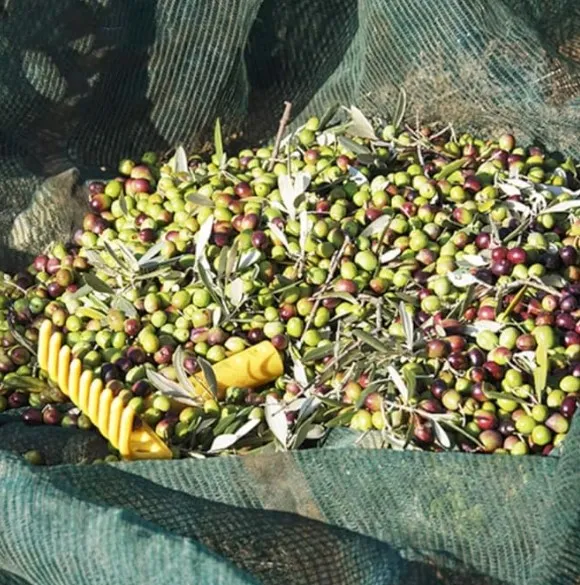-
 Afrikaans
Afrikaans -
 Albanian
Albanian -
 Amharic
Amharic -
 Arabic
Arabic -
 Armenian
Armenian -
 Azerbaijani
Azerbaijani -
 Basque
Basque -
 Belarusian
Belarusian -
 Bengali
Bengali -
 Bosnian
Bosnian -
 Bulgarian
Bulgarian -
 Catalan
Catalan -
 Cebuano
Cebuano -
 China
China -
 Corsican
Corsican -
 Croatian
Croatian -
 Czech
Czech -
 Danish
Danish -
 Dutch
Dutch -
 English
English -
 Esperanto
Esperanto -
 Estonian
Estonian -
 Finnish
Finnish -
 French
French -
 Frisian
Frisian -
 Galician
Galician -
 Georgian
Georgian -
 German
German -
 Greek
Greek -
 Gujarati
Gujarati -
 Haitian Creole
Haitian Creole -
 hausa
hausa -
 hawaiian
hawaiian -
 Hebrew
Hebrew -
 Hindi
Hindi -
 Miao
Miao -
 Hungarian
Hungarian -
 Icelandic
Icelandic -
 igbo
igbo -
 Indonesian
Indonesian -
 irish
irish -
 Italian
Italian -
 Japanese
Japanese -
 Javanese
Javanese -
 Kannada
Kannada -
 kazakh
kazakh -
 Khmer
Khmer -
 Rwandese
Rwandese -
 Korean
Korean -
 Kurdish
Kurdish -
 Kyrgyz
Kyrgyz -
 Lao
Lao -
 Latin
Latin -
 Latvian
Latvian -
 Lithuanian
Lithuanian -
 Luxembourgish
Luxembourgish -
 Macedonian
Macedonian -
 Malgashi
Malgashi -
 Malay
Malay -
 Malayalam
Malayalam -
 Maltese
Maltese -
 Maori
Maori -
 Marathi
Marathi -
 Mongolian
Mongolian -
 Myanmar
Myanmar -
 Nepali
Nepali -
 Norwegian
Norwegian -
 Norwegian
Norwegian -
 Occitan
Occitan -
 Pashto
Pashto -
 Persian
Persian -
 Polish
Polish -
 Portuguese
Portuguese -
 Punjabi
Punjabi -
 Romanian
Romanian -
 Russian
Russian -
 Samoan
Samoan -
 Scottish Gaelic
Scottish Gaelic -
 Serbian
Serbian -
 Sesotho
Sesotho -
 Shona
Shona -
 Sindhi
Sindhi -
 Sinhala
Sinhala -
 Slovak
Slovak -
 Slovenian
Slovenian -
 Somali
Somali -
 Spanish
Spanish -
 Sundanese
Sundanese -
 Swahili
Swahili -
 Swedish
Swedish -
 Tagalog
Tagalog -
 Tajik
Tajik -
 Tamil
Tamil -
 Tatar
Tatar -
 Telugu
Telugu -
 Thai
Thai -
 Turkish
Turkish -
 Turkmen
Turkmen -
 Ukrainian
Ukrainian -
 Urdu
Urdu -
 Uighur
Uighur -
 Uzbek
Uzbek -
 Vietnamese
Vietnamese -
 Welsh
Welsh -
 Bantu
Bantu -
 Yiddish
Yiddish -
 Yoruba
Yoruba -
 Zulu
Zulu
mild steel mesh
Understanding Mild Steel Mesh Properties, Applications, and Advantages
Mild steel mesh is a versatile material made from mild steel, known for its ductility, malleability, and moderate tensile strength. Commonly referred to as low carbon steel, mild steel typically contains a carbon content of less than 0.25%. This attribute makes it easy to weld, cut, and shape, contributing to its widespread usage across diverse industries. Mild steel mesh is manufactured in various configurations, including welded wire, expanded metal, and woven wire, catering to different applications.
Properties of Mild Steel Mesh
One of the primary characteristics of mild steel mesh is its strength-to-weight ratio. Despite being lighter than many other metals, it possesses sufficient strength to withstand various forms of stress and load. The mesh is often coated with anti-corrosive materials, such as galvanization, to enhance its durability and protect it from rust, moisture, and harsh environmental conditions. Additionally, mild steel mesh exhibits good electrical conductivity, making it useful in applications involving electrical grounding or shielding.
Another significant aspect of mild steel mesh is its cost-effectiveness. Compared to materials like stainless steel or aluminum, mild steel is relatively inexpensive. This affordability, combined with its favorable properties, makes it an attractive option for both large-scale construction projects and smaller DIY applications.
Applications of Mild Steel Mesh
Mild steel mesh has a plethora of applications across various sectors. In the construction industry, it is widely used for reinforcement purposes, especially in concrete structures. The mesh helps distribute loads evenly, thereby enhancing the structural integrity and longevity of buildings, bridges, and roadways.
mild steel mesh

In landscaping and agriculture, mild steel mesh serves as fencing material, offering a durable and reliable barrier for livestock, gardens, and crops. Its open structure allows for visibility and airflow, while keeping unwanted animals at bay. Additionally, mild steel mesh is commonly employed in fruit and vegetable sorting and grading systems, where it provides a reliable means of support while allowing for effective drainage and washing.
In the industrial sector, its applications extend to filtration systems and sieves. Mild steel mesh filters are used to separate various materials, ensuring the purity and consistency of products in the food, chemical, and pharmaceutical industries. Moreover, its heat resistance makes it suitable for use in high-temperature areas, such as HVAC systems, where it might be employed in heat exchangers.
Advantages of Mild Steel Mesh
The advantages of using mild steel mesh are numerous. One of the standout features is its adaptability. Depending on the required specifications, mild steel mesh can be produced in various sizes, gauges, and mesh patterns. This flexibility allows manufacturers and contractors to customize the mesh to fit specific project needs.
Mild steel mesh is also easily available and can be produced in large quantities, ensuring a steady supply for ongoing projects. Its ease of installation further enhances its appeal; mesh panels can be quickly and efficiently installed, saving time and labor costs.
In conclusion, mild steel mesh is an essential material that finds applications across numerous sectors, thanks to its strength, versatility, and cost-effectiveness. Whether used in construction, agriculture, or industrial processes, mild steel mesh continues to be a reliable choice for various needs. As industries evolve and technology advances, it is likely that the demand for mild steel mesh will only increase, adapting to new challenges and requirements along the way.
-
Why Construction Steel Mesh is the Backbone of Modern InfrastructureNewsJun.27,2025
-
The Ultimate Solution for Versatile Industrial and Consumer ApplicationsNewsJun.27,2025
-
Smart Breeding Starts Here: The Ideal Breeder Net for GuppiesNewsJun.27,2025
-
Maximize Your Harvest with Smart NetNewsJun.27,2025
-
High-Performance Steel Mesh Solutions for Modern IndustryNewsJun.27,2025
-
Durable Solutions for Modern Agriculture and LandscapingNewsJun.27,2025











